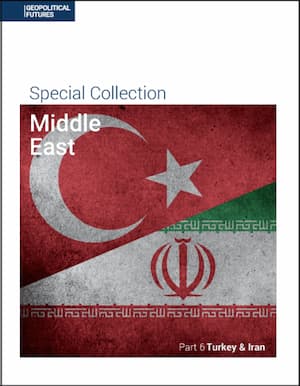Get Geopolitical Futures FREE newsletter

Sign up now and receive our special report on Turkey, Iran, and the future of the Middle East.
Get weekly analysis from New York Times bestselling author George Friedman and our global team of analysts, plus special offers.
